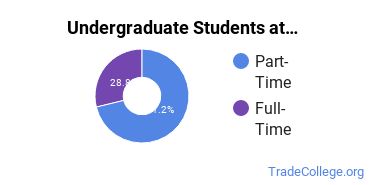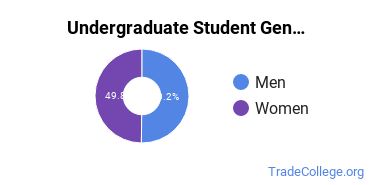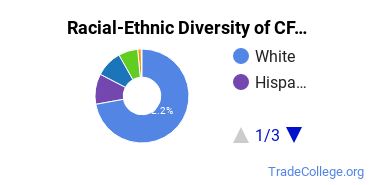Find Trade Colleges
Cape Fear Community College Trade Programs
Cape Fear Community College is a public institution situated in Wilmington, North Carolina. Wilmington is a great location for students who prefer city over country life.
Featured schools near , edit
Where Is Cape Fear Community College?

Contact details for CFCC are given below.
| Contact Details | |
|---|---|
| Address: | 411 North Front Street, Wilmington, NC 28401-3910 |
| Phone: | 910-362-7000 |
| Website: | www.cfcc.edu |
Can I Afford CFCC?
| In State | Out of State | |
|---|---|---|
| Tuition | $2,432 | $8,576 |
| Fees | $316 | $316 |
| Books and Supplies | $1,600 | $1,600 |
Student Loan Debt
Almost 66% of college students who graduated with the class of 2018 took out student loans, but that percentage varies from school to school. At CFCC, approximately 11% of students took out student loans averaging $9,710 a year. That adds up to $38,840 over four years for those students.
Cape Fear Community College Undergraduate Student Diversity

Gender Diversity
Of the 3,054 full-time undergraduates at CFCC, 45% are male and 55% are female.

Racial-Ethnic Diversity
The racial-ethnic breakdown of Cape Fear Community College students is as follows.

| Race/Ethnicity | Number of Grads |
|---|---|
| Asian | 42 |
| Black or African American | 298 |
| Hispanic or Latino | 345 |
| White | 2,149 |
| International Students | 2 |
| Other Races/Ethnicities | 218 |
Cape Fear Community College Trade School Concentrations
The table below shows the number of awards for each concentration.
References
*The racial-ethnic minorities count is calculated by taking the total number of students and subtracting white students, international students, and students whose race/ethnicity was unknown. This number is then divided by the total number of students at the school to obtain the racial-ethnic minorities percentage.
More about our data sources and methodologies.
